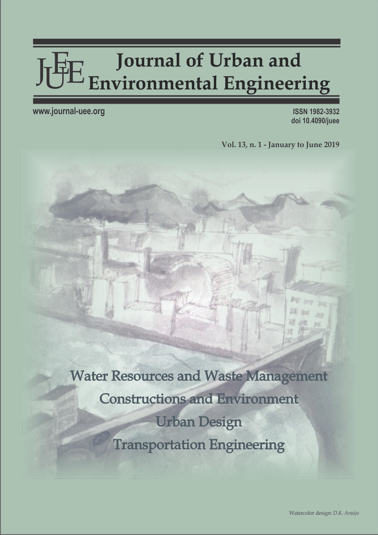PATTERNS OF ENERGY EXCHANGE FOR TROPICAL URBAN AND RURAL ECOSYSTEMS LOCATED IN BRAZIL CENTRAL
DOI:
https://doi.org/10.4090/juee.2019.v13n1.69-79Keywords:
Urban climate, turbulent flux densities, Bowen ratio, land cover changeAbstract
Seasonality and inter-annual variation of the energy balance of natural surfaces as the effect of conversion from natural to agricultural areas has been the object of much in-depth research in South America. However, none has assessed the effect of conversion from a native to an urbanized area. Current research was performed in the city of Cuiabá, in the Cerrado-Pantanal ecotone, state of Mato Grosso, central Brazil, featuring a tropical sub-humid climate (Aw). The paper investigates the pattern of energy fluxes exchanges in the rural and urban sites located in Brazilian savannah ecosystem. The heat stored inside the urban canopy (ΔQS) and within the rural area was obtained by the Objective Hysteresis Model (OHM) and by soil flux meter, respectively. Sensible (H) and latent (LE) heat fluxes were estimated by the Bowen Ratio Energy Balance (BREB). The rural and urban sites had different patterns in the micrometeorology variables Wind speed decreased and air temperature and vapor pressure deficit increased from rural to urban site. The urbanization also modified the energy fluxes partition of urban canopy by increasing ΔQs (12%) and H (60%) and by decreasing LE (29%), with β = 2.0 in contrast of rural canopy, where the partition was ΔQs (1.5%), H (29%), LE (64%) and β = 0.45. The ΔQS, H and LE were in phase with Rn, differing from what has been reported for sites in North America and Europe.Downloads
Download data is not yet available.
Downloads
Published
2019-10-05
Issue
Section
Articles




